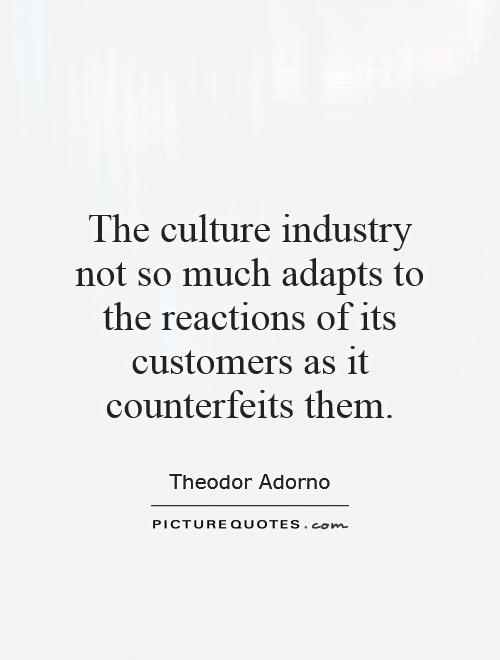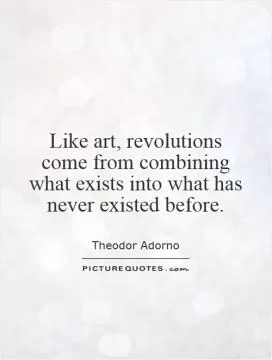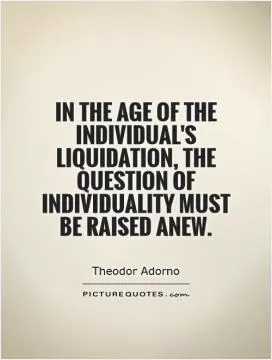The culture industry not so much adapts to the reactions of its customers as it counterfeits them

The culture industry not so much adapts to the reactions of its customers as it counterfeits them
The statement "The culture industry not so much adapts to the reactions of its customers as it counterfeits them" by Theodor Adorno highlights the manipulative nature of the cultural production in capitalist societies. Adorno, a critical theorist and philosopher, believed that the culture industry, which includes mass media, entertainment, and advertising, does not genuinely respond to the desires and preferences of its audience. Instead, it manufactures artificial needs and desires in order to maintain control and perpetuate the capitalist system.Adorno argued that the culture industry operates as a form of social control, shaping the thoughts, beliefs, and behaviors of individuals in society. By creating a false sense of choice and freedom, the culture industry deceives consumers into believing that they are making independent decisions, when in reality, their desires are being manipulated and controlled by powerful corporations and institutions. This process of counterfeiting reactions serves to maintain the status quo and reinforce the dominant ideology of consumerism and materialism.
One of the key ways in which the culture industry counterfeits the reactions of its customers is through the production of standardized and formulaic content. Adorno observed that cultural products such as music, film, and television often follow predictable patterns and formulas that cater to the lowest common denominator. By recycling familiar themes, tropes, and narratives, the culture industry creates a sense of familiarity and comfort for consumers, while also limiting the potential for critical thought and creative expression.
Furthermore, Adorno argued that the culture industry promotes conformity and homogeneity by discouraging individuality and diversity. By promoting mass-produced and easily consumable products, the culture industry discourages critical engagement and intellectual curiosity, leading to a passive and apathetic audience that is easily swayed by manipulative marketing tactics and propaganda.












 Friendship Quotes
Friendship Quotes Love Quotes
Love Quotes Life Quotes
Life Quotes Funny Quotes
Funny Quotes Motivational Quotes
Motivational Quotes Inspirational Quotes
Inspirational Quotes